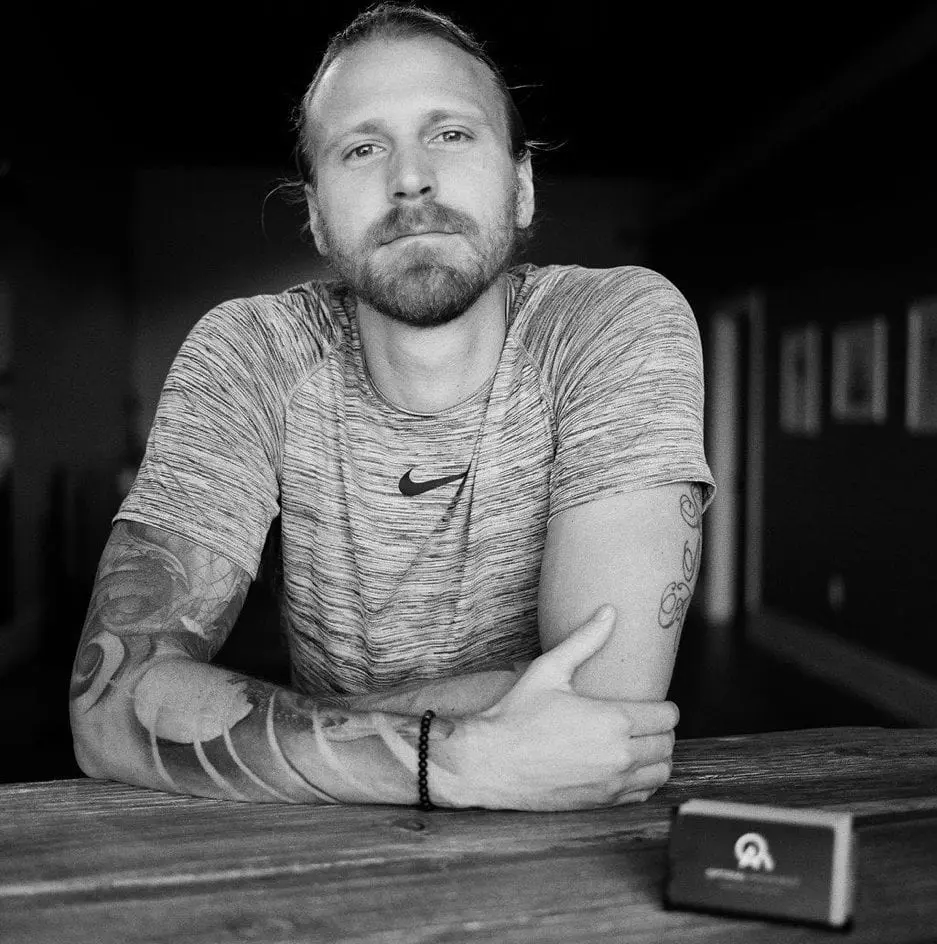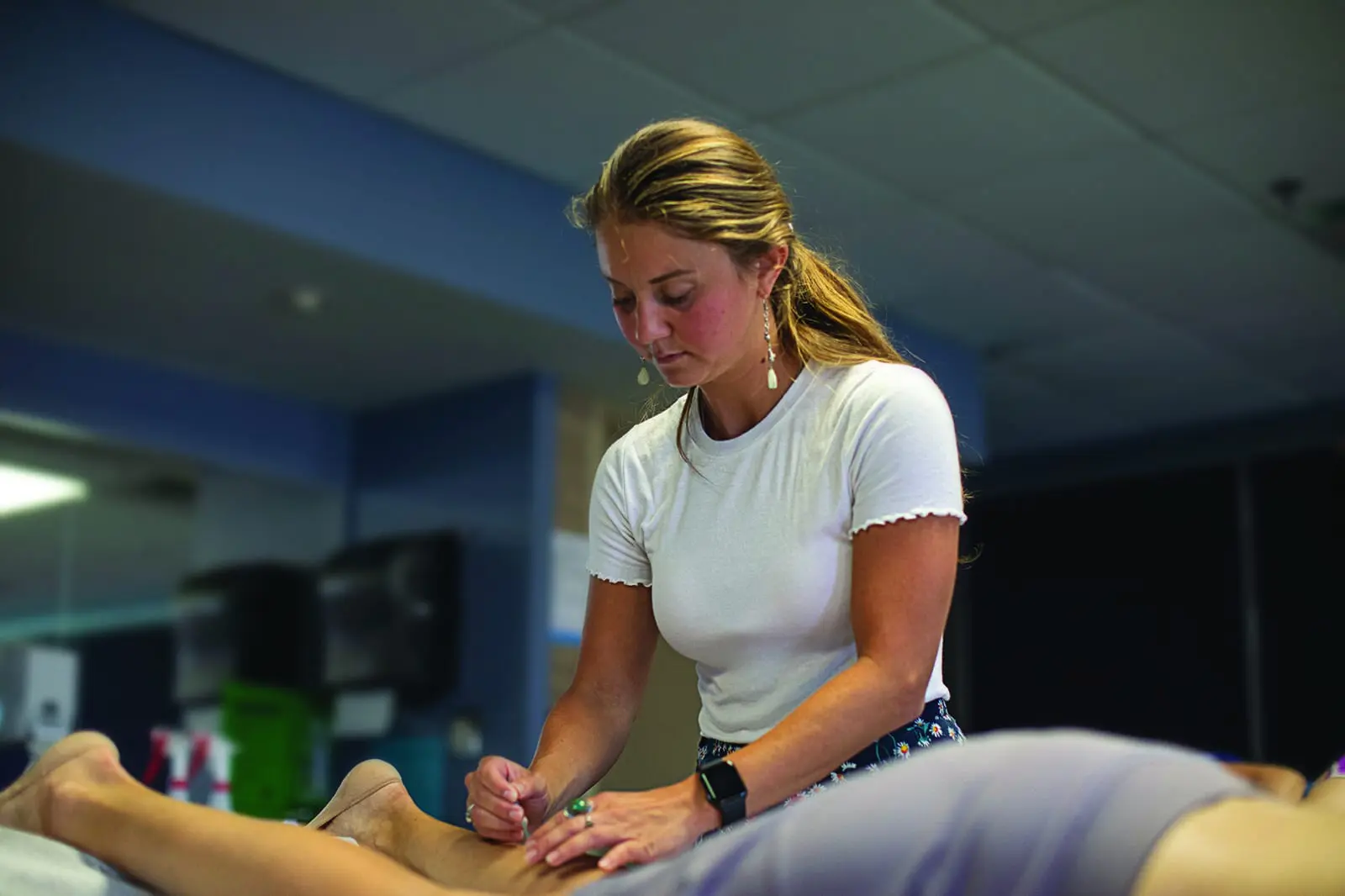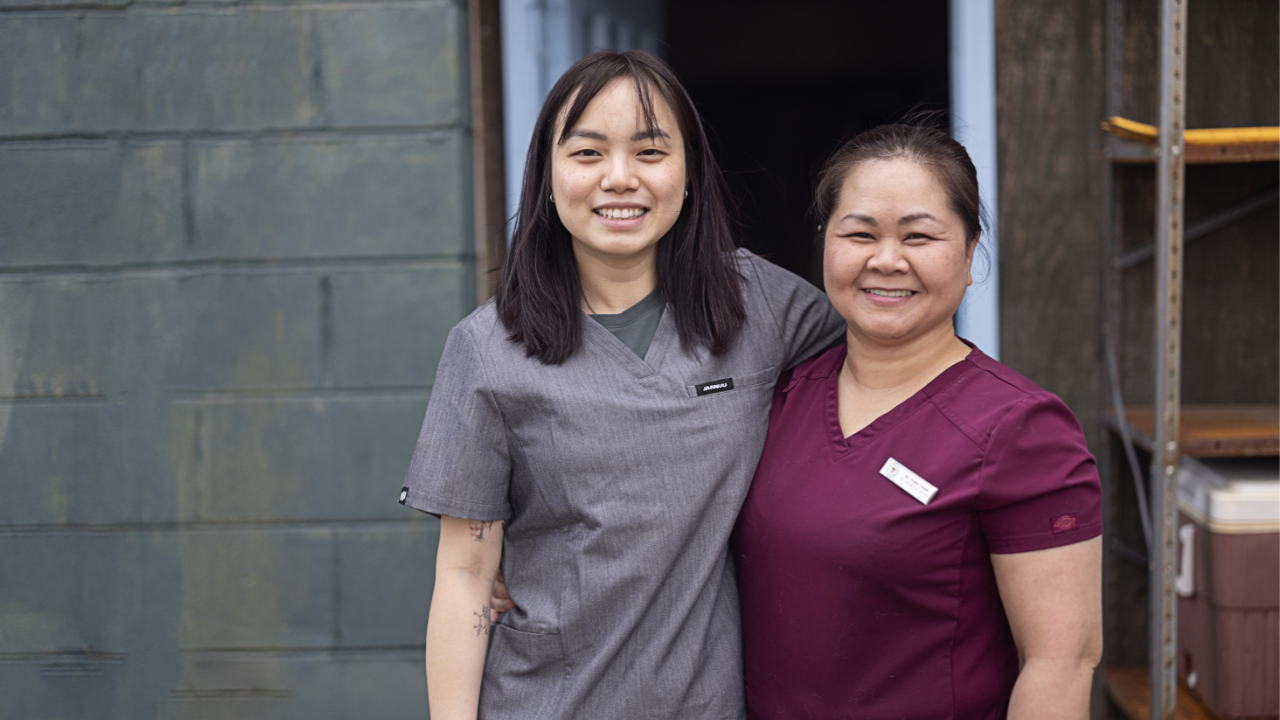How to Build an Integrative Healthcare Practice: One Acupuncturist’s Experience
To say Philip Kish, D.Ac., likes being an acupuncturist hardly does justice to his passion. “I love what I do. Every day I’m amazed at what acupuncture can accomplish.” But he also values the patient benefits that can come from other practices—like massage therapy and chiropractic care.
That’s why he’s such a proponent for an integrative approach to healthcare. “When we get these different perspectives working collaboratively,” says Dr. Kish, “that’s when they’re the most powerful.”
Dr. Kish completed Northwestern Health Sciences University’s Master of Acupuncture program in 2015 and soon after opened Optimal Movement, an integrative healthcare clinic in Rochester, Minnesota. (He earned a Doctorate of Acupuncture and Chinese Medicine in 2017.)
It was Dr. Kish’s NWHSU experience that not only set him on the path to professional success as an acupuncturist, but also inspired him to establish an integrative healthcare clinic.
Acupuncture training builds the foundation
Dr. Kish says his time in NWHSU’s acupuncture program provided him an “invaluable foundation” for the profession he loves. “It thoroughly prepared me for the board exams and has allowed me to excel as a practitioner. We had in my opinion some of the best instructors in the country,” recalls Dr. Kish.
He also points to the wide variety of clinical experiences he had. NWHSU acupuncture students begin practicing in clinical settings in their second trimester and have a wide range of opportunities through university partnerships with hospitals, hospices, community clinics, and long-term care facilities.
This is in addition to NWHSU’s own clinics, including a sport-focused Human Performance Center.
“There were so many different settings where you could practice and where you could fulfill your internship requirements. I don’t think many other programs are so well connected in the larger community or have such a sophisticated clinic system themselves,” says Dr. Kish.
Another program feature that stands out for Dr. Kish was the cadaver lab. “Being able to see what an acupuncturist really works on—the tissues, the vasculature, the nervous system—gives you an understanding of the human body that I don’t think you can get any other way. It’s also great for an acupuncturist’s confidence.”
The ‘catalyst’ for starting an integrative clinic
Dr. Kish says that even before he finished his acupuncture training, he knew he wanted to open an integrative healthcare clinic, one where acupuncture, massage therapy, and chiropractic care would all be offered.
“My experience at NWHSU was the catalyst for my thinking.”
NWHSU provides a unique integrative learning environment because of the multiple programs it offers—all of them healthcare-focused. Dr. Kish explains that being exposed to different perspectives both challenged his way of thinking and enriched it.
“Yes, I was studying acupuncture intensely. But on top of that I was immersed in a general culture of health and wellness. And I made some great connections with massage therapy and chiropractic students—and also got practice treatments from them.”
Interacting with students and faculty from other programs at NWHSU, says Dr. Kish, “drove home for me just how crucial it is that we learn from and lean on one another to provide the best patient care. I honestly don’t think I would have such a successful clinic today if it weren’t for my exposure to other disciplines.”
Putting it all together in an integrative practice
An integrative healthcare clinic such as Dr. Kish’s does more than provide a multi-disciplinary staff of practitioners. As he explains, he and his staff of three massage therapists and a chiropractor all work together from a patient-centered model of care.
“Whether that involves acupuncture, massage therapy, chiropractic, a combination of those practices, or a treatment outside of what we provide, our ultimate focus is helping each patient get better. Period.”
In fact, Dr. Kish plans to further his clinic’s integrative approach by bringing in his wife, who is completing her education to become a nurse practitioner. And to deepen his clinic’s wellness offerings, he’s added a 1,200-foot yoga studio and hired five yoga instructors.
Dr. Kish says opening an integrative healthcare clinic has also been a smart business move. “I’m in Rochester, the land of the Mayo Clinic. I think it would have been harder for me to go solo here. But more importantly, I think we’re fulfilling a need in the community for more healthcare options. In the process, we’ve created a strong and successful practice.”
Make the most of your valuable opportunity: Dr. Kish’s advice to students
For students of any discipline at NWHSU, Dr. Kish says, “Be more than just curious. Be proactive. Explore the many options offered. Pick the brains of the faculty members and fellow students, and not just those of your own program. Try and learn something about the other professions and treatment modalities.”
Along with studying hard in your chosen field, Dr. Kish suggests sitting in on other classes, attending seminars, and even getting additional training in other disciplines.
“Once you’re consumed with your own career, you’ll probably never have such a rich opportunity to learn about other areas again. Do everything you can to take advantage of that.”
Think you might be interested in a career in acupuncture?
Then take the next step today!
LEARN MORE About Our Acupuncture and Chinese Medicine Program







